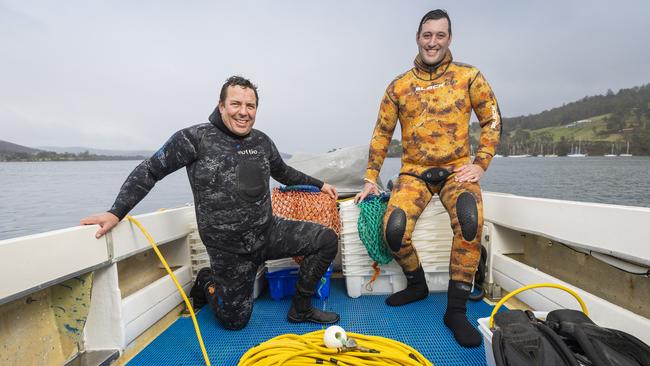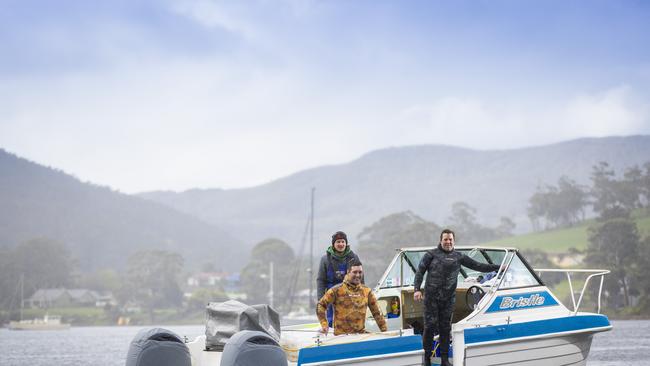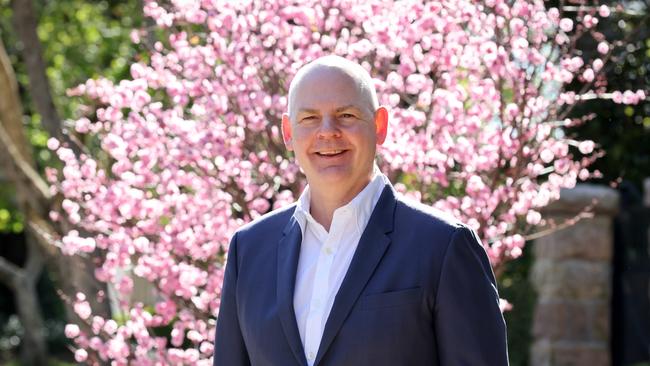The asset manager helping First Nations people hook fishing rights
Qantas Super-backed Longreach Maris is introducing a plan to aid Indigenous people access wild-caught fishing rights for species such as mud crab and abalone.

Qantas Super-backed asset manager Longreach Maris is rolling out a plan to aid Indigenous fishers around Australia in accessing wild-caught fishing rights and quota, for species including mud crab and abalone.
The initiative is part of Longreach Maris’s latest Reconciliation Action Plan that aligns with a key priority within the federal government’s National Fisheries Plan. The firm, which counts seafood veteran George Costi as investment committee chairman, manages $311m across its strategy.
Qantas Super has tipped capital into the strategy, which separately includes an investment fund, and focuses on buying, leasing and sub leasing the rights to fishing quota known as individual transferable quota (ITQ). The ITQ are limited in supply, are tradeable and are issued and regulated by the federal and state governments to protect against overfishing and enable close monitoring of each species.
Sydney-based Longreach Alternatives, the parent group, has $3.1bn in assets under management and advice. Longreach Maris was established four years ago in partnership with the parent entity to wade into the asset class.
The firm also has to manage a host of risks including volatility in quota, as certain species see the total allowable commercial catch reduced or increased by governments.
Australia’s trading relationships can also have an impact on the ability to sell wild-caught seafood in markets offshore. For example, the federal government continues to press China to lift a trade ban on Australian lobster imports, which has dented demand for many suppliers.
The firm sees opportunities in impact investing. Longreach Maris’s managing director Andrew Rado said when ITQ were first issued Indigenous fishers were excluded from the allocation of commercial fishing rights because they couldn’t demonstrate a commercial catch history. He believes Indigenous communities can benefit alongside the investment firm from the active management of ITQs and better access to fishing rights.

“There is a strong lease demand. They can be used in a way to drive positive impact and one positive impact that we sought to deliver on day one was trying to identify Indigenous fishers who wanted to drive a sustainable seafood business on country,” Mr Rado said. “Our fund now has many Indigenous fishers with secured access … what we’ve done over the last two or three years is working on the ground and we have the intention to roll that out nationally.”
In Tasmania, Mr Rado said they’d identified three abalone fishers who had sought and obtained First Nations’ supply accreditation, and in 2024 the trio had leases reflecting just under 13 tonnes of abalone quota. The Tasmanian fishers are Ben Allen, Nathan Clark and Daniel Walter.
“Securing enough quota is highly competitive and is done with people who know each other, so if you don’t know anyone in the industry, it’s terribly hard,” Mr Walter said of trying to get a foothold in the industry.
Sustainable production has been in focus across Australia’s food industries as the population expands and producers also transition to using lower carbon emitting sources of energy.
Last month, Western Australia’s Agriculture Minister Jackie Jarvis ordered her department to find ways to make global buyers aware of the sustainable production methods used in Australia. “One of the things that’s become really apparent to me in the last couple of years that I’ve been Ag Minister in this state, is we don’t sell our story particularly well to our global buyers,” she said at The Australian’s Bush Summit in Port Hedland.

Qantas Super’s investment chief Andrew Spence said the fund’s investment in ITQs, managed by Longreach Maris, preferentially provided First Nations fishers with access to fishing quota.
“We’re committed to identifying compelling investment opportunities that deliver strong financial returns to our members while aligning with our values of positive impact and sustainability,” he said. Mr Spence travelled to Queensland in recent months to observe how the Qantas Super investment was working in practice in Mapoon, an Aboriginal community in Cape York.
Longreach Alternatives’ chief executive Samuel Mann said the firm supported the due diligence as it was important that impact investing and its outcomes could be measured. “It’s got to be measurable, it’s not just the optics of it,” he added.
Mr Rado said the firm was underpinning the Mapoon business with 17 tonnes of mud crab quota. “It’s literally changed their business, the security of their business and now they can get all the community involved.”
Investors will, however, want to see how Longreach Maris’s returns stack up. The fund targets total annual returns of between 8 per cent to 12 per cent, reflecting yield and any capital growth in the value of the ITQs. The yield is paid semi-annually.
Longreach Maris is assisting Indigenous communities in getting access to fishing quota but also engaging with those that are seeking to start a business from scratch or via a grant. The federal Indigenous Land and Sea Corporation provides grants for acquiring and managing rights and interests in land, salt water and fresh water, while the Queensland government runs the Indigenous Fishing and Forestry Grants Program.




To join the conversation, please log in. Don't have an account? Register
Join the conversation, you are commenting as Logout